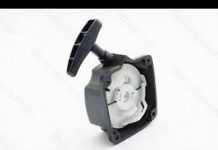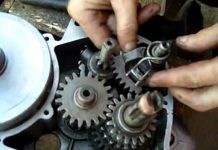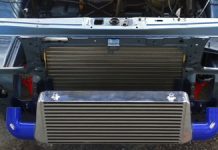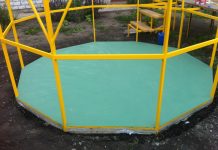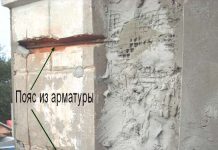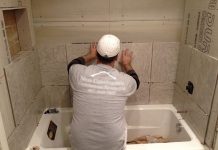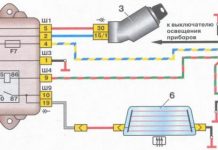In detail: DIY repair of Intex inflatable mattresses from a real master for the site my.housecope.com.
Of course, if a mattress or air bed is used as a trampoline, then it is hardly necessary to talk about a long service life. But even if you find punctures or some other damage, you should not despair: you can repair the air mattresses at home. You just need to arm yourself with a special kit and carefully study the instructions.
The tips below will tell you how you can quickly bring an inflatable product back to life at home without damaging it even more. In some cases, such repairs will become only temporary and you will have to contact a specialized workshop, but often home repairs are of very high quality.
The place of damage is not always immediately determined, sometimes the puncture is almost invisible and you need to carefully approach the detection of air leakage.
- Carry out a thorough examination of the mattress.
- Attach the back of the hand to the alleged place of damage - you can feel the flow of cold air.
- Partial immersion of the product in water will also tell you where the air is leaking - by the appearance of bubbles, it is immediately clear where it is damaged.
- Damage appears well when treated with soapy water. The entire mattress should be lathered with a sponge or just a piece of foam rubber, after inflating it. Even the smallest punctures will show up as air bubbles.
- Mark the identified damaged areas with chalk and a bar of soap. Blow off the mattress, clean it from dirt, dry it well (not by the battery!).
When a person tries to repair a mattress on his own, there are often advisers who recommend pouring water into the mattress to find the puncture site. It will be quite effective, but it will hardly be possible to use the thing in the future: not only do ugly whitish stains form, but the fabric itself will also remain wet. Surely you won't want to sleep on such a mattress.
| Video (click to play). |
- For do-it-yourself repairs, it is easier to use a kit for repairing similar products. For example Intex (59632).
- Do not use any super glue categorically!
If gluing is carried out with dismakol, then it should be applied by thinly spreading over the surface of the patch; let it dry for about 10 minutes, apply a layer of glue again. Now it should be dried to a state of adhesive tape, glue and smooth well. For drying, you can use a hair dryer, just do not turn it on in hot air.
In case of significant damage, the best way out is to contact a workshop, where repairs are carried out by specialists using special devices and adhesives.
In the absence of such an opportunity, you can do everything at home.And then you should act in the same order as with a puncture. But at the same time, cut the patch so that it protrudes a centimeter on all sides of the gap.
Elimination of punctures, small cuts will not in any way affect the process of use in the future. Despite the size and material from which the mattress is made, the product will serve for a long time.
If necessary, the repair of air mattresses can be done more than once. Even if there was significant damage on the flat surface of the mattress, but the repair work was carried out in compliance with all recommendations, the consumer properties of the product will remain for a long time.
In case of minor damage along the edge of the seam, it is enough to inflate the mattress by half to find it. Having found a leak, you should fill the damaged area with glue and let it dry, then repeat the operation until the air bubbles disappear. After a couple of hours, the mattress can be used, but there are misfires when it is not immediately possible to fix the damage.
But, if there is damage of more than one centimeter, you need to contact a specialized workshop.
For repairs, you will need a tube of polyurethane glue, a piece of leather or PVC.
Cut out a patch about 2 cm in diameter. It is good to clean and dry the damaged area and the patch, without removing the nap from the surface of the mattress, because trying to remove it can further damage the item being repaired. Apply glue to the surface of the patch and the damaged area, dry for 10-15 minutes; apply another thin layer of glue and dry so that the glue sticks slightly.
Now you should apply the patch to the surface of the mattress, press and hold it for a while, smoothing the edges. To speed up the process, you should not use lighters, burning matches, irons, etc. - you can only ruin everything. You can use a hairdryer with caution, without turning on the maximum mode. After all, leave the mattress for an hour. Then inflate to check. There should be no trace of punctures, although the leak at the rupture site will most likely not be completely eliminated.
In this case, there is a direct road to the air mattress repair shop. It will not be possible to repair the breaks on your own, and for a master such a "post-repair repair" will be more difficult and later will cost more.
Often they sin on the valves when the mattress begins to deflate. This is easily verified. You need to prepare a soapy solution and a brush or sponge. Inflate the mattress and close the valve, then apply a thick lather around the valve. If air bubbles do not appear, then there is no need to blame the valve - the reason is different. If there are bubbles, then you need to contact the master. And you should not try to trim the valve surface with sandpaper - it will not work.
Correctly done repairs will make it possible to use your favorite mattress for a long time. Repaired damage will not in any way affect the functionality of the product and will certainly not add the risk of new damage. Of course, during normal use for its intended purpose.
If you do not want to do the repair yourself:
- look for damage,
- messing around with soaping and drying
- etc.
Then you should immediately contact specialized workshops, where knowledgeable specialists have the equipment necessary for checking leaks, special glue and work experience.
An inflatable mattress is a rather durable thing, and by itself it is unlikely to start letting in air. The most common reason a product fails is the sharp claws of a cat.But is it worth it to say goodbye to your beloved cat because of this? Moreover, a damaged item can be easily repaired if you know how and how to glue the air mattress.
Can you glue the inflatable mattress yourself? Undoubtedly.
- pump;
- marker;
- container with water (for the first method);
- a sponge and any foaming agent (for the second);
- flour or starch (for the third method);
- matches or a lighter (for the fourth).
A surefire way to find the damaged area before you glue your air mattress at home is to submerge it in water. If the mattress is very small, a bowl of 10 - 20 liters will be enough, the larger item will have to be put into the bath, but the "adult" full-fledged mattress will fit only in a summer pool or a small pond.
The product, in which you need to find a hole, is pumped up with a pump and placed in a container of water. Then they carefully observe: air bubbles will be visible at the puncture site.
To detect a defect, it makes no sense to throw a thing into a river or another body of water with a constant current, because small air bubbles in such water can hardly be seen.
Having found a hole, it is immediately marked with a felt-tip pen. But do not rush and immediately remove the product from the water. Perhaps there is more than one puncture and there are tiny holes nearby, because of which a mattress, repaired in the most careful way, will still poison the air.
If the product is large, and there is no pond or pool nearby, you can find a puncture, due to which the air mattress is deflated, using foam.
To do this, take any detergent or laundry detergent and whip it into lather. Apply the resulting foam to the entire surface with a foam sponge and fix where air bubbles appear. They will be easy to spot on thick foam.
And if there are no bubbles? Then the puncture is on the other side, and you will have to repeat the soaping procedure from the beginning.
An inflatable PVC mattress or an inflatable bed is a useful thing, both for outdoor recreation and as a spare sleeping place for guests, and sometimes for oneself. But besides convenience, there is a drawback in Intex or any other inflatable mattresses, they must be carefully handled in order to avoid punctures, cuts or tears, and this is true both for the velor top of the mattress and the base made of polyvinyl chloride. A puncture or rupture is sometimes noticed when you wake up prematurely from touching the floor of the room. Or if you unsuccessfully try to inflate the mattress tightly after storage. Such an unexpected event immediately causes confusion, what to do, how to repair, how to glue or how to fix an air mattress with your own hands? Where can I find the patch? What kind of glue to glue? You don't have to look for a workshop! You can glue the inflatable mattress with your own hands.
In the absence of patches, some inexpensive inflatable PVC toy for children can serve as material for replacing them. Cut out a patch in the shape of a circle from the toy. Sandpaper is purchased from a hardware store. Degreasing agent - alcohol or gasoline.
We are looking for a hole, hole, puncture, rupture or torn seam in the mattress. We need to be optimistic and patient. I offer the following simple instructions for finding a puncture and repairing an air mattress:
1. In a quiet room or room, inflate the mattress as tightly as possible.
2. We listen and try to localize the leakage area by the sound of the outgoing air.
3. Carefully study the area of the leak, for example, slowly moving your palm at a distance of 1-3 cm from the surface to localize the hole of the hole. A thin stream of air will "cool" the palm.
4. If the hole or holes are visible, mark them with a ballpoint pen or felt-tip pen.
5. Very small holes are sometimes difficult to see, then you will need to use soapy water, the place of bubbles is also marked.
6.In INTEX mattresses, the sore spot is the valve, so the bleeding is not always the result of a puncture, the valve is also checked with soap and water. Attention! Do not check the valve of the built-in pump in this way or dry it thoroughly before switching on.
6. Prepare a patch of the required size, the edge of the patch should be no closer than 15 mm from the hole.
7. The place of repair is dried, cleaned with sandpaper, and the patch is also cleaned. You can try to clean the fleecy surface with a cotton swab dipped in acetone.
8. Put the patch on the place of gluing and trace its contours on the mattress, this will allow you to gently apply the glue.
9. Degrease the place of gluing and blow off the air from the mattress. For acceleration, you can rearrange the hose on the pump or use a vacuum cleaner.
10. Apply glue to the marked area on the mattress and to the patch.
11. After applying the "Crystal" glue, pause for 5-10 minutes and strongly squeeze the patch and the surface of the mattress. Of course, the surface of the mattress is not always even. Compression density during gluing can be ensured as follows: We try to lay the canvas in the place of gluing on a flat surface. Quickly without the formation of bubbles, roll the patch onto the gluing site, put a piece of polyethylene on the patch, then a piece of foam 3-5 mm thick, slightly larger than the size of the patch, and put a load on top. This sequence of actions is best done before gluing. After installing the load, it is necessary to forcefully press the gluing place for 5-15 seconds and leave the gluing alone for several hours.
12. If everything is glued well and there is no other damage, then we pump up the mattress in 24 hours and use it.
When using the mattress outdoors, inspect the mattress placement surface for piercing objects and cutting glass fragments. Do not pull the mattress on a hard surface with people lying on it; in this case, unacceptable stresses may occur on the seams and cells of the mattress with breaks in the fastening of the inner frame. Avoid playing with animals near the inflatable mattress, cats can easily break through the covering with their claws.
yes indeed the cats have untied a rubber three-section mattress with 18 holes to glue them I will not cut this section
From my:
1. You can quickly blow off the mattress with a vacuum cleaner
2. To deflate by jumping and running on the mattress is almost hopeless, but the chances of damaging the mattress are even higher, so just let the mattress deflate under its own weight, you can put a cotton mattress on top, for example, over the entire area, this will speed up the process a little.
3. For INTEX mattresses with a fleecy surface, it is optimal to remove the fluff before gluing with acetone, it is normally cleaned off with a cotton swab or disc, and only then work with such a surface.
4. In INTEX mattresses, the sore spot is the valve, therefore, the bleeding is not always the result of a puncture, the valve is also checked with soap and water, but do not check the valve of the built-in pump in this way or dry it thoroughly before turning it on.
Thanks for the detailed and helpful comment!
Thank you, I will try to glue it together today.
how to replace the patch if there is no spare pvc material for the mattress?
Strange, the answer is in the text “In the absence of patches, some cheap inflatable toy for children can serve as material for replacing them. Sandpaper is purchased from a hardware store. Degreasing agent - alcohol or gasoline. "
Hello . Thanks for this article. Need advice:
It is necessary to glue the anti-decubitus cellular mattress made of polyvinyl chloride (PVC). There are no problems in patches, there are a lot of them 🙂
What adhesives do you recommend?
-It is desirable that he glue it together as quickly as possible (in order to lay the bedridden patient on the glued mattress as soon as possible). In most adhesives, the term is stipulated for a day. This is VERY long in our case 🙁
- so that the glue smell in a closed room (apartment) is not very long.
What is the minimum gluing time to use the product? (if it is important, the patient's weight is 55 kg, but on the other hand, the compressor constantly, every 6 minutes, alternately inflates / deflates the cells of the mattress)

You also have problems with inflatable bed Intex? Or with an inflatable mattress? I think yes. You have opened this page for a reason. At first I was also glad that such a successful contraption appeared in the house. But then she also began to let air through. Slowly at first. Then in the middle of the night I had to get up and pump up. Then during the night I had to do this twice already, otherwise you would wake up lying on the hard floor in the arms of a lowered inflatable bed. It all ended very badly: the bed was finally “blown away” and removed until better times. When the summer season began and repair kits for gluing Intex inflatable products appeared on sale, there was a real chance to repair our leaky bed. I bought a repair kit and.
The first place where I saw it on sale was the Sportmaster store. For only 199 rubles you can buy a repair kit consisting of a tube and a transparent patch. It's good that I never bought it. Indeed, in the Auchan store, the exact same set costs only 54 rubles:

No matter how much I tried to discern the differences in these products, I could not find it. The kits are identical. Probably, Sportmaster buys kits in Auchan and sells them at four roads.
Returning home, I pulled out the long-suffering inflatable bed from the mezzanine, laid it out on the floor and decided to immediately start repairing. First tore off all the previous patches. It's embarrassing to even admit, but earlier, trying to solve the problem with holes, I sealed them with tape. You understand that there was not much sense from this. Moreover, from the scotch tape on the surface of the bed, a sticky viscous glue remained, which was very difficult to remove.
But what was to be done? It was winter outside, repair kits are not for sale in winter. This is a seasonal item. Therefore, if you become the proud owner of an inflatable bed or mattress Intex, buy one or two at once repair kit... Who knows when your product will leak, in a year or tomorrow.
Finding old holes in old parts of the bed, I lightly cleaned them with alcohol. If there is no alcohol, vodka will do.
After unpacking the repair kit and reading the instructions, I thought about it. At some point, there was even a desire to abandon this whole venture, since it was fraught with the most “rosy” consequences if something went wrong. Here's what it says about the glue:
Can you imagine? Accidentally inhale a couple of glue and that's it! Fatal outcome. Maybe, well, her, this bed. Then I'll try with regular rubber glue?
However, curiosity and a desire to solve the problem right now took over. As they say, fly so fly!
To begin with, let's give "praise" to the manufacturer for the fact that he so tightly wound the patch material into the tube.


No matter how long I tried to straighten the material, each time it regularly rolled into the same compact roll. Here, you bastards! Just bastards! No, to put two or three bookmarks in an unfolded state. After all, the size of the package allows you to do this. In a word, I got angry with the manufacturer and the second time I wanted to abandon my plan.
Then, when the surging rage subsided somewhat, I nevertheless cut out a patch of the required size and prepared for the most terrible thing: it's time to open the tube of killer glue.

Didn't even doubt it! The glue in the tube was naturally under pressure. As soon as the protective membrane was pierced, a part of the “magic liquid” immediately ended up partially on the fingers and partially on the floor. But, as the old joke says, “Chukchi are not a fool”! His hands were prudently wearing rubber gloves, and the floor was covered with old newspaper. If it weren't for the gloves, it remains to be seen what might have happened.Perhaps you would not read this article now and would not have been warned about the insidiousness of vinyl glue 🙂
Then the fun began. It was necessary to somehow manage to smear the patch with dangerous glue, which was striving to curl up into a roll. I tried on for a long time, but each time I realized that now it, already smeared, would again curl up into a tube and immediately stick together. This will end the game. And no pleasure other than breathing in the vapors of the vinyl glue! How not to be angry with the manufacturer!
Then a saving thought came. What if glue is not on the patch, but on the surface of the inflatable bed itself? Let's try it, anyway it won't work out otherwise:

Is it clear now. There was no explosion or other chain reactions. Now quickly apply a patch on top!

Aha! Somewhere already "grabbed"! Briskly grease the rest of the area with glue and press:

Then the incomprehensible began. The corners of the patch suddenly began to curl in the opposite direction - from the surface of the bed. I had to take action - grease the edges and press them into place.
More than once or twice during this time, I again wanted to drop everything and return to the good old rubber glue. The patch turned out to be terribly ugly. I didn't like it. Moreover, I somehow could not believe that it would hold on and not fall off the first time the bed was inflated.

In a similar way, I glued a couple more patches on the holes I knew in the inflatable bed. Then, according to the instructions, it was necessary to leave the product for 12 hours for complete setting.
The sight of the glued patches was disheartening. They looked too primitive. Most likely, all this is an empty idea. But when I tried to pick out the edge of one of them, it turned out to be stuck tightly.
Having inflated the inflatable bed, I first left it alone and did other things. Imagine my surprise when, after about a couple of hours, I came to the room where the experiment was being carried out and found that the Intex product did not even think to “let it go”. It looked exactly the same as right after pumping.
Deciding to conduct a more daring experiment (it was just about time for an afternoon rest), I lay down on the bed. When I woke up about an hour later, I noticed that the bed had lost some of its elasticity.
One of two things - either some patch is “gone” or there are one or two more “unaccounted for” holes.
This is the longest part of the job, but at the same time the most creative. Find a hole the size of a sewing needle in a huge double inflatable bed Is a whole ritual. I'm not afraid to say that this is an exciting quest for true adventurers!
First, it is worthwhile to pump up the product tightly enough and listen to if a suspicious hiss is heard from any part of it. Before that, you need to close all windows, doors, turn off all sounding household appliances and remove the headphones from the player from your ears.
Try to listen to the mattress alone. Otherwise, your focused look, which is an example of embodied attention, will certainly cause an unhealthy reaction in those present. With their laughter and barbs, they can threaten the failure of your mission.
Sometimes a simple listening is enough to find a puncture. However, very small holes cannot be found this way.
Alternatively, move your wet hand slowly over the surface of the inflatable product, hoping to catch the faint flow of air going out through the opening. Here you definitely need to be alone in the room. Indeed, from the outside it may seem that you are trying to heal the mattress with your suddenly awakened psychic abilities. Here you can not avoid jokes. Especially if you inadvertently tell someone that you are trying to repair a mattress or bed this way.
Alas, sometimes neither hearing, nor magical passes with hands over the surface of the product help to identify the problem area. Then you have to move on to plan "B."
Perhaps you recall looking for a puncture in a swimming ring or bicycle tube as a child? Right. They were simply lowered under the water and watched where the bulbs would come from. But try putting even the simplest single air mattress into the water, not to mention a huge bed.
Soap solution helps. Armed with a brush, first of all, it is worth "walking" with the solution in all corners, edges and seams. Look carefully for bubbles starting to inflate in the place where you just daubed. In this case, try to do without witnesses, because in your work you will resemble an outstanding artist working with concentration on the next greatest canvas of our time.
If you went through all the problem areas, and did not see bubbles, we begin a total check of the entire surface. You will need a wider brush. For example, painting. This work is quite painstaking and wet, but it is guaranteed to lead to results. The main thing is not to rush.
There is also the potential for air to pass through the pump valve. There is nothing you can do about it. As you know, you can't get far from fate.
There is another "ambush" that can lie in wait for the owner of an inflatable bed. This is a burst internal partition.
One night in the middle of the night I suddenly woke up from some strange and rather loud sound. First thought: the cat is pulling an inflatable bed with its claws. Very similar. However, turning on the light, I realized that the beast had nothing to do with it. It's just that the innermost partition burst near the bed.
As a result, there is a slight elevation on one side. It did not cause much inconvenience. Rather, on the contrary - now there was no fear of falling out of bed during sleep.
About a month later, another burst - the next one from the same edge. The inflatable bed has been transformed from a double bed into some kind of fancy single sofa:
What to do in such cases? I'm afraid to upset you, but the answer is the decadent word "nothing." Of course, you can do as befits real optimists: carefully cut the outer shell, five-neatly glue the inner bulkhead, and then just as neatly close up the outer cut. But at home, only a very decisive person can venture on such experiments.
Therefore, it remains only to watch with sadness how the partitions fail one after another. When the last of them orders to live long, the inflatable bed will stop into some strange object, resembling a huge hamburger in shape. I think I have all the prerequisites to follow this process to the end and show you all the stages.
Now I know I can find a small hole in the outer shell and glue the inflatable bed or Intex mattress quite possible at homewithout resorting to the services of specialists. I used a proprietary repair kit for this. Perhaps the same effect can be achieved with ordinary rubber glue and simple patches. Almost three weeks have passed since then and the bed is doing well. Of course, every two or three days it has to be pumped up using the built-in pump, but this is quite normal.
So, if your inflatable bed needs to be pumped up more often than once a day, you can try looking for a hole and glue it over instead of getting upset over trifles. We all know that nerve cells do not regenerate.
As for the destruction of internal partitions. hopefully you are more fortunate than me. After all, it will be either impossible or very expensive to fix such a defect.
Inflatable mattresses are used not only for relaxing on ponds, they are also often used at home instead of a bed for guests. They are compact, take up little space when deflated, and their service life is unlimited, if only you use them carefully and avoid punctures.But when they happen, the question arises of how to seal the air mattress and whether it is possible to do it yourself. Anyone can perform such repairs, you just need to select the required materials and tools.
Such a convenient home attribute can tear or puncture at any time, frisky pets, branches or garbage on the street at home can contribute to this, but you should not throw it away. The mattress can be repaired by yourself using patches and glue, if you follow the instructions below, it will turn out to be no worse than that of specialists.
Gluing a rubber product is a simple process, it is much more difficult to figure out how to find a hole in an air mattress. Most often, it is so small that it cannot be found with a cursory examination, and there is no way to determine it by sound. First of all, you should make sure that it is not about the valve, often it is because of its loose screwed cap that air leaks occur.
First, you need to find all the leaks and without a careful examination of the entire product and the use of all sorts of methods for detecting punctures is indispensable.
Visual inspection of a rubber item sometimes does not give any results. If, however, the place of damage becomes immediately noticeable, then by placing the back of your hand on it, you can feel the flow of cold air coming from the inside of the mattress.
You can also feel the movement of air with your hands soaked in water, only you need to carry out the study of the mattress systematically, studying every centimeter, not forgetting to constantly wet your brushes.
If the hole has become noticeable near the reservoir, then the exact place of its deployment can be calculated if the product is completely inflated and as many people as possible are placed on it. Then, under their mass, it will submerge in water and bubbles will become noticeable on the water surface, and the damaged area is determined from them.
A pre-inflated mattress must be treated with soapy water; for this, use a foam sponge or a piece of this material. The soapy substance, made from liquid or ordinary soap, is poured into a convenient container - a cup, and all surfaces are methodically treated with it. With this method of detecting holes, even the smallest of them can be identified by air bubbles.
People with good hearing will be able to identify punctures by ear. Just to check the mattress, you need to choose a quiet room, inflate the mattress in it and listen carefully to the characteristic hissing sound, it is formed by the air at the exit.
Sometimes it is advised to fill a rubber product with water, and by the trickles that will flow out of it, you can determine where the hole is. But the complexity of this technique is that the product after such filling will be difficult to dry, and in the future some simply refuse to use it. But if, nevertheless, the situation is in the summer, then the mattress can be easily dried in the air, only whitish stains may remain.
If they do not bother you, then the order of defining holes is as follows:
- completely release all air from the rubber product;
- prepare a liquid with a soapy solution;
- pour the prepared soapy solution with a volume of 3 liters into the mattress and inflate it;
- slowly turn the mattress on all sides in order to determine the puncture site by the characteristic hissing sounds;
- mark the identified places of damage with a marker.
After identifying all areas that let air out of the mattress, mark them with a marker, chalk or a piece of soap. The rubber thing is thoroughly cleaned of dirt, if necessary, washed, waiting for it to dry naturally. In no case should you hang it on a radiator or near other heating devices.
The place for the patch must be degreased using acetone, gasoline, which is used for lighters, pure alcohol or liquid to remove nail polish. After such processing, no traces should remain.
A completely logical question arises as to how to seal the inflatable mattress so that it can still serve for many years. It is best to buy a ready-made repair kit from Intex, which contains:
- transparent vinyl film;
- flock patch;
- glue.
The kit comes with instructions that make it easy to figure out how to properly stick the patch. Such a set can be bought in advance together with a mattress, in order to avoid searching for the necessary materials in the future. It does not take up much space, but if necessary, it can be used even on the road.
If there is nowhere to buy such a set, then you can prepare all the materials necessary for the repair from available tools:
- any old inflatable children's toy is suitable for patches, from which you can cut a piece of the desired size, it can be a ball, a sleeve, a pool, a circle and much more;
- instead of special glue, you can purchase its analogue for rubber, only you cannot use super glue, otherwise you can damage the mattress.
The tools are scissors, sandpaper, a glue brush and a marker for marking.
There are many products on the market that are suitable for gluing rubber products; when choosing them, those options that act instantly should be avoided.
Its transparent composition reliably glues not only rubber patches, but also pieces of other materials. Its complete drying occurs after a day.
This polyurethane adhesive is also known as Desmokol. It is mainly used for gluing leather products, but it is also successfully used for repairing rubber mattresses.
It is also known as Liquid Patch. It is waterproof and comes in different colors, which is very convenient, since you can restore a product of any color without losing its attractive appearance.
Although this glue is made from natural rubber, it is not recommended to use it for repairing mattresses, as when it cures it becomes so hard that it can later crumble.
It must be applied to the patch and the rubber product at the same time, and after two minutes they are applied to each other and placed under the press. The repair result can be checked after 24 hours.
If the damage is small, then you should not overload the product with large patches, it will be enough to cut a piece of 1.5 × 1.5 cm from a suitable material. Before gluing, the patch itself and the puncture site must be treated with alcohol, and then wait until they dry. Bonding should be done when the rubber is dry.
If there are several local puncture points on the mattress, but they are located next to each other, then they can be combined under one piece of material. In this case, it is necessary that the edges of the patch completely overlap the damaged area; for this, a margin of at least 1 cm on each side must be provided.
The amount of glue depends on its type. In the case of using "Moment" it is applied in a thick layer, and if the repair is carried out with Dismakol, then it is smeared over the patch thinly and evenly. After applying the glue, the patch and the damaged area must be dried, preferably waiting for 10 minutes. But if there is not so much time, then you can use a hairdryer, only warm, not hot air should come from it.
With small areas of damage to the seam, they are simply poured with glue and do not touch the product until it is completely dry, but if it was not possible to correct the situation the first time, then the repair should be repeated.
There is another way of gluing seams, it is more laborious, but reliable. Its implementation is as follows:
- after identifying the place of leakage, the mattress section must be pulled out through the valve, for this you can use a ruler;
- the place of damage is wiped with alcohol or other means for degreasing the surface;
- after processing, the product must dry, during this time the necessary patch is cut from the prepared rubberized fabric, glue is applied to its inner side;
- the patch is applied to the seam and firmly pressed against it.
After this repair option, the mattress does not need to be touched for at least 12 hours; after the glue has completely dried, the mattress is turned back and inflated.
If it was not possible to eliminate the leak at one time, you need to repeat the whole process of gluing the patch again, just do not need to eliminate the old one. It is necessary to cut a piece larger than the previous one and fix it on top of the old one, it will be more reliable, but at the same time you need to make sure that the edges are well greased with glue.
Some people worry that over time, the edges of the patch will start to rip up and it will fall off because of this. To prevent this from happening, you need to sand them a little after the patch is glued, and then apply a small strip of glue on top.
Each time after using the mattress on vacation, it must be deflated on the beach, and then transported home in this form. If you do not want to constantly inflate it, then you should carry it on your hands, while trying not to touch sharp and stabbing objects (tree branches, roofs, etc.). At home, it is better to install it against the wall, in the corner, so that doors, pets and children cannot hook it. It is stored only dry.
| Video (click to play). |
Correct repair of the mattress guarantees its long service life in the future, and if you follow all the recommendations for its storage and use, then the rubber thing will delight you for many and many months.





